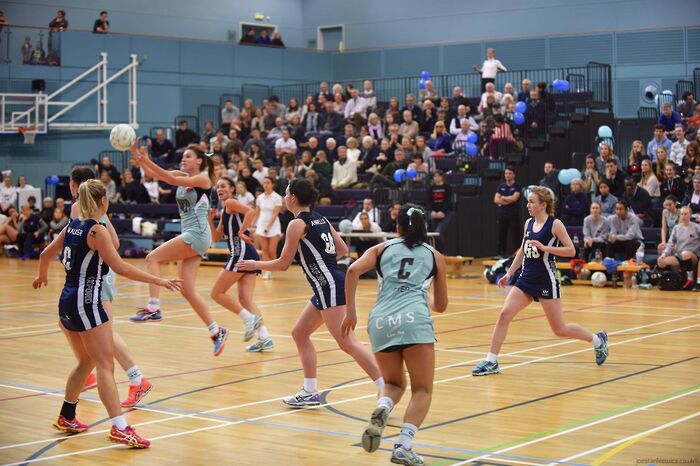Is it time to move the Varsity match away from Twickenham?
William Ross shares his thoughts on the damaging implications of holding Oxbridge rugby at one of Britain’s most celebrated grounds

The Varsity Rugby match, played annually at Twickenham, remains one of the highlights of the Oxbridge sporting calendar. Each year, the two blues rugby teams are given the privilege of battling it out at the home of English rugby, and the second-largest sports stadium in the United Kingdom. The only way for other British university rugby teams to play at Twickenham is for them to reach the final of the BUCS Super Rugby Championship, a tournament which the Oxbridge rugby blues do not even compete in. Why, then, are the Oxbridge rugby teams automatically afforded an annual trip to Twickenham?
The simple answer is tradition. The match, played annually since 1872 and held at Twickenham since 1921, is one of the world’s longest-running sporting fixtures. The women's match was moved to Twickenham in 2015 – a significant step forward for gender equality in university sport. As the official Varsity Match website notes: “the importance of the contest is highlighted by the enormous contribution Oxbridge rugby and the Varsity Match have made to the development and refinement of the game of rugby over the last 135 years.
“Up until 1875, the Universities fielded 20 players a-side, as was the norm for Rugby football in those early years. In that year, the Universities and their respective Blues took the initiative and changed to 15-a side. This caught on quickly and was adopted as the international standard in 1877.”
“Special privileges for the Oxford and Cambridge rugby blues only serves to perpetuate the damaging myth that Oxbridge is in some sense better in all areas than other universities.”
Oxbridge rugby was certainly a trendsetter, setting the standard for the rest of the rugby world to follow. Indeed, the game was historically played to a professional, even international standard, with more than 600 players from either Oxford or Cambridge gaining international representative honours since its inception.
Indeed, according to the official Varsity match website, it remains “the pinnacle of amateur and student rugby”. The results of the men's Oxbridge rugby teams against other British university rugby sides, however, reveal a sobering reality: since the 2012-13 season, the Cambridge University Men's Rugby Blues have played 17 fixtures against other British universities, losing 11 of them, drawing 1 and winning just 5. In other words, they failed to win over 70% of their matches against other British Universities. Put simply, Oxbridge men's rugby is no longer the dominant force in student rugby that it once was. If attendance at Twickenham was judged on a purely meritocratic basis, it would be hard to maintain the argument that Oxbridge should be there.
The story for the Cambridge Women's Rugby Blues, however, tells a different story. Last year, they won the BUCS league unbeaten, with 532 points over second-place Nottingham, and have placed consistently highly in recent years, reaching the semi-finals in 2017, 2016, and 2014. Cambridge women's rugby remains a force to be reckoned with.
Norman Celliers, a former Varsity match winner at Oxford, said of the men's Varsity match a few years ago: “It’s unique; it’s about Britain and history and tradition”. But playing conkers in the playground, Morris dancing and eating plover’s eggs are also rooted in British tradition. Does that mean that they remain relevant in the 21st century? At any rate, do we really want a society fixated on history and tradition, at the expense of a meritocracy?
Members of the Oxbridge Rugby certainly work phenomenally hard over the course of the season in balancing their preparation for the Varsity match alongside their studies, but the fact remains that so do players at universities up and down the country.
Playing at Twickenham is a privilege which should be earned through excellence on the rugby pitch, not automatically bestowed. Special privileges for the Oxford and Cambridge rugby blues only serves to perpetuate the damaging myth that Oxbridge is in some sense better in all areas than other universities. If we want to favour meritocracy over elitism and innovation over anachronistic traditions, we need to stop giving Oxbridge rugby a free pass to Twickenham. Ultimately, society has changed irrevocably since the early 20th century; the rugby world should do the same.
- This article was updated on 21st October to include references to the recent strength of Cambridge women's rugby, including its significant move to Twickenham in 2015, and make clear that the discussion of whether Cambridge rugby should continue to be played at Twickenham referred to the men's team. It was also amended to more clearly distinguish between the writer's discussion of men and women's rugby in the original article.
 Features / Should I stay or should I go? Cambridge students and alumni reflect on how their memories stay with them15 December 2025
Features / Should I stay or should I go? Cambridge students and alumni reflect on how their memories stay with them15 December 2025 News / Dons warn PM about Vet School closure16 December 2025
News / Dons warn PM about Vet School closure16 December 2025 News / Cambridge study finds students learn better with notes than AI13 December 2025
News / Cambridge study finds students learn better with notes than AI13 December 2025 News / News In Brief: Michaelmas marriages, monogamous mammals, and messaging manipulation15 December 2025
News / News In Brief: Michaelmas marriages, monogamous mammals, and messaging manipulation15 December 2025 Comment / The magic of an eight-week term15 December 2025
Comment / The magic of an eight-week term15 December 2025










